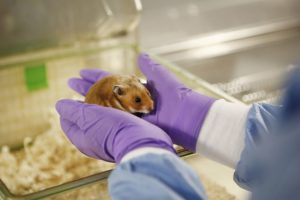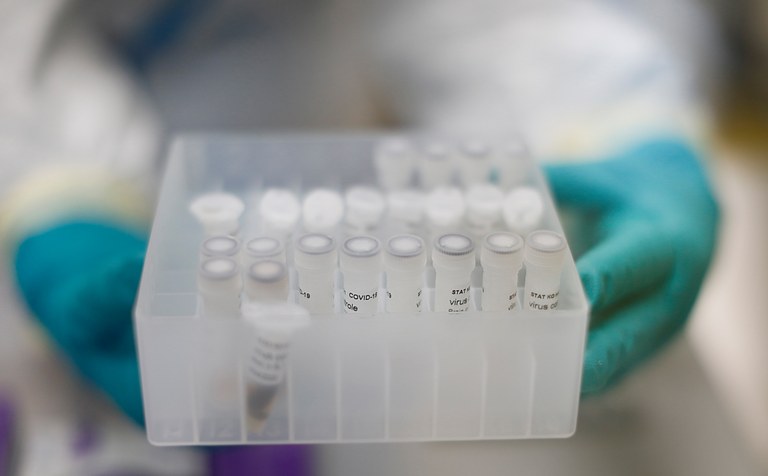Virologists from the Rega Institute at KU Leuven university found a vaccine that protects hamsters against the coronavirus, which they plan on testing on humans by the end of 2020.
This is one of the first vaccine candidates that is proven to protect lab animals from infections, the Institute announced in a press release. The aim is to start clinical trials on human subjects this winter.
The team, led by Professor Johan Neyts and Kai Dallmeier, started developing eight vaccine prototypes against the coronavirus. One of these vaccine candidates has shown in lab experiments that it is highly effective in hamsters.
When hamsters receive the SARS-CoV-2 virus through their nose, they develop a lung infection that is similar to Covid-19.
Healthy hamsters were first vaccinated, and exposed to the virus a couple of weeks later. Control groups each received one of two alternatives: the yellow fever vaccine, or a placebo.

© Layla Aerts - KU Leuven
“In the hamsters that received the vaccine candidate, we found up to half a million times fewer virus particles than in the control groups. These animals also did not develop any lung infections," said Neyts.
"The lungs of their counterparts in the control groups, by contrast, showed clear signs of infection and disease,” he said, adding that a single dose of the vaccine candidate proved sufficient to prevent infection.
Additionally, several animals were already protected within ten days after vaccination.
The vaccine candidate is based on the existing vaccine against yellow fever, into which the researchers inserted parts of the genetic code of the SARS-CoV-2 virus.
In the past, the KU Leuven team already used the same approach to develop vaccine candidates against other diseases such as Ebola, Zika, and rabies.
Related News
- Risk of Covid-19 infection via surfaces 'overblown', professor argues
- Sanofi, GSK, AstraZeneca, Moderna: The race towards a covid-19 vaccine
- EU invests €75 million in candidate vaccine
“The effectiveness of the yellow fever vaccine is well-established,” Neyts said, explaining that it has been in use for about eighty years, and close to 800 million people have already received it.
"One dose of the vaccine offers lifelong protection against yellow fever. More than 160 vaccines against Covid-19 are currently in development, but ours is the only one that is based on the yellow fever vaccine," he added.
Currently, negotiations with potential partners who have to produce the vaccine candidate for testing are still ongoing.
“If everything continues to go according to plan, we want to start the first clinical trials with human subjects by the end of this year,” said Kai Dallmeier, who leads the vaccine development team at KU Leuven.
“It generally takes at least ten years to develop a vaccine, so our working speed has been exceptionally high," he said, adding many vaccines are in development around the world at the moment.
"That is a good thing because, in this stage, it is important not to put all our eggs in one basket," Dallmeier added.
Maïthé Chini
The Brussels Times

